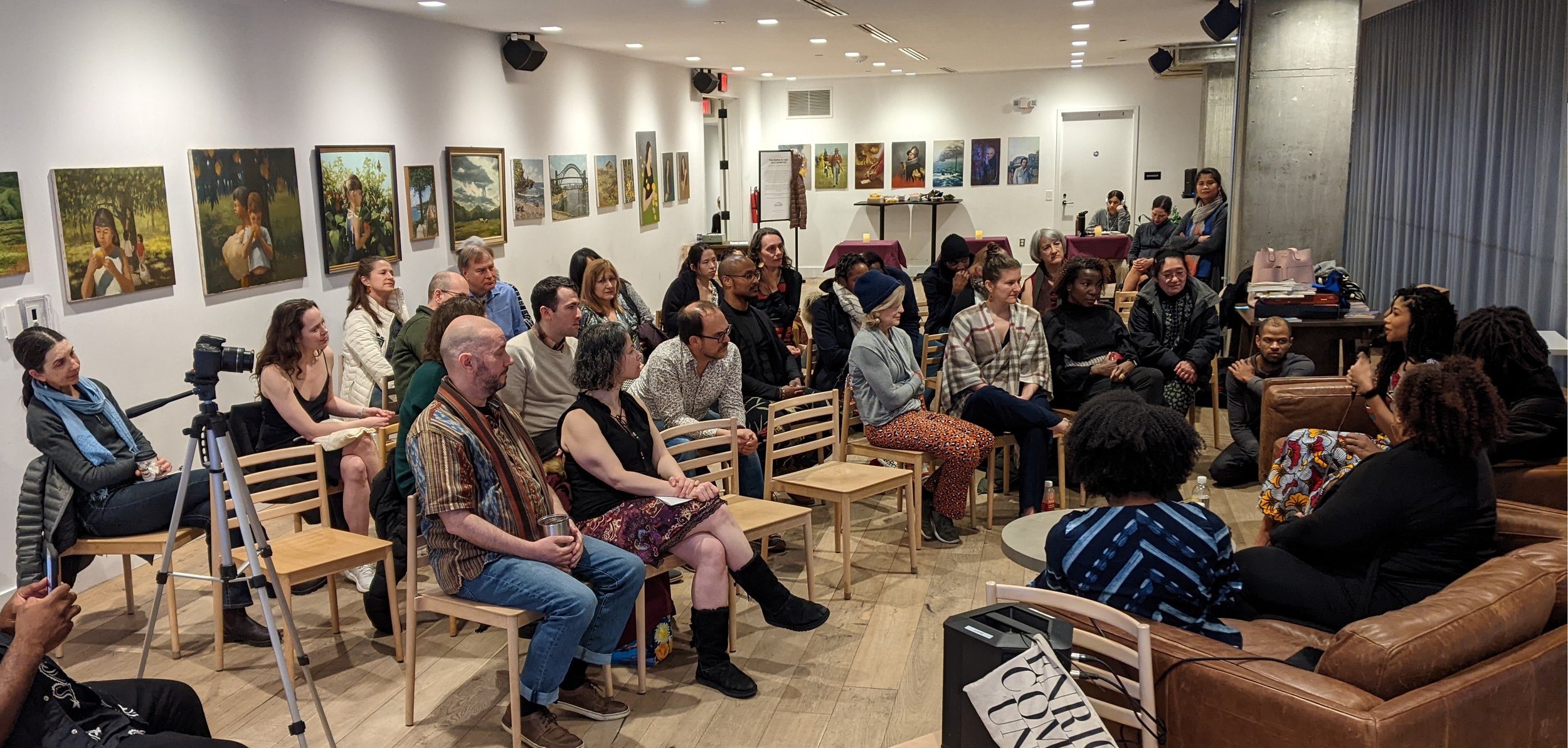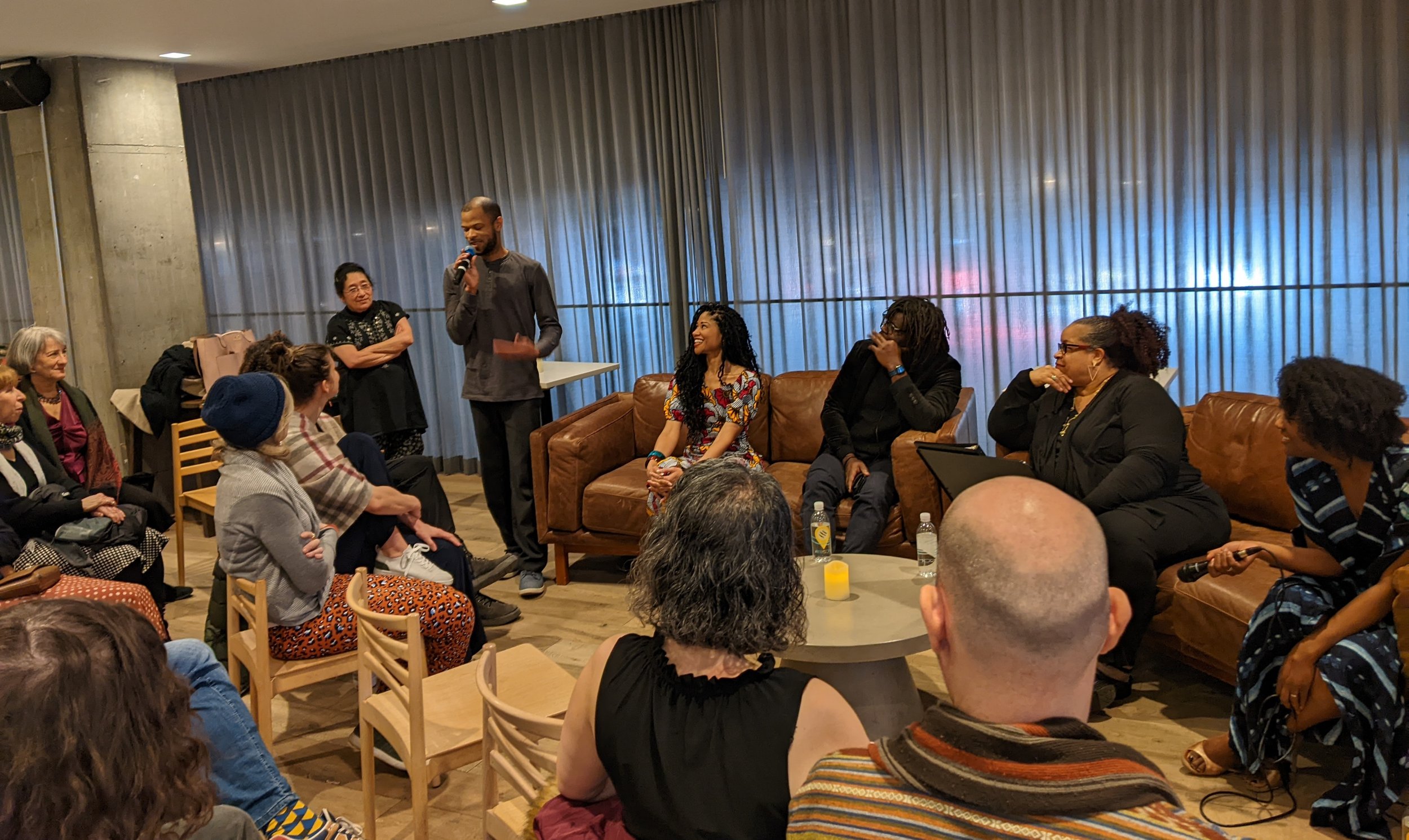Insights from a Tango Dialogue in Celebration of Black History Month 2024
/Prepared by Joerg Schlatterer
Photo: Ramu Pyreddy
On Sunday, February 25th, Tango Mercurio hosted a lively and insightful panel discussion in celebration of Black History Month. The event, which explored the influence of African rhythm in Tango and delved into contemporary Black experiences within the Tango community focusing on the topics of diversity and inclusivity, was open to the public with free admission.
Three esteemed panelists of African /African American descent, accompanied by a skilled moderator, Dr. Amanda Garley, led the discussion, which attracted a diverse audience of passionate individuals eager to learn and engage.
Throughout the panel, attendees gained valuable insights into the intricate fusion of African rhythms and European music that characterize Tango. Valerie Higgs, a renowned African American musician in the DC metro area explained how Tango's essence lies not solely in its instrumental composition but in the soulful expression embedded within the music.
The conversation also touched upon the future of Tango music, highlighting the importance of musicians, both professional and amateur, in experimenting with new elements and styles to propel the genre forward.
One of the most impactful aspects of the event was the candid discussion surrounding diversity and inclusion within the Tango community.
Tango dancers and organizers were encouraged to continue to be proactive in engaging with individuals they hadn't met at a dance event before, fostering an environment of welcome and inclusivity.
Photo: Ramu Pyreddy
Important topics such as microaggressions, the significance of language, and the various dimensions of diversity were explored. Panelists and Participants shared their experiences and insights, emphasizing the importance of respecting boundaries and avoiding assumptions or biases.
To address the issue of accessibility within the Tango community, several proactive suggestions were put forth. These included providing free entrance to events, offering dance lessons in communities where people reside, and implementing stipends or tiered entrance fees to make Tango more accessible to marginalized communities.
Additionally, the panelists proposed hosting small group private lessons at reduced fees and incorporating music styles preferred by marginalized communities into Tango lessons to generate interest and inclusivity.
Furthermore, it was suggested that Tango practitioners should engage with other dance communities, such as bachata and salsa, by conducting demonstrations to showcase the beauty and diversity of Tango.
Overall, the live panel discussion served as an enriching and thought-provoking event, celebrating the rich heritage of Black history while also addressing pertinent issues of diversity, inclusion, and accessibility within the Tango community. It underscored the importance of dialogue, understanding, and proactive measures in creating a more inclusive and vibrant Tango community for all.
This Tango Mercurio event was supported by a grant of the DC Commission on the Arts & Humanities.






